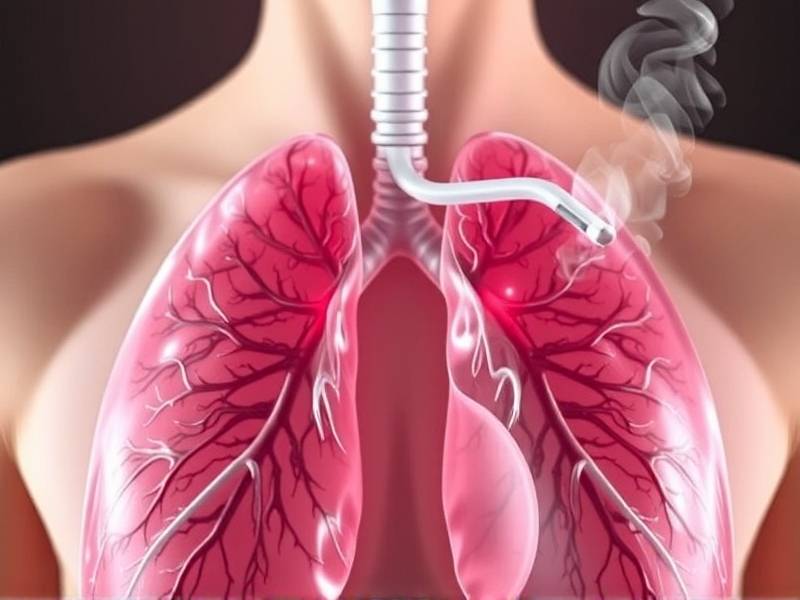Does Quitting Smoking Really Increase Lung Capacity? The Science Behind the Question
Introduction: The Quest for Healthier Lungs
The debate over the benefits of quitting smoking has been ongoing for decades. One of the most frequently asked questions is whether giving up cigarettes can actually improve lung capacity. In this article, we delve into the scientific research to answer this question and explore the potential benefits of quitting smoking on respiratory health.
What is Lung Capacity?
Lung capacity refers to the maximum amount of air your lungs can hold. It's an important measure of respiratory health and can be affected by various factors, including age, height, weight, and overall fitness. Smokers often have lower lung capacity compared to non-smokers due to the harmful effects of tobacco smoke.
The Impact of Smoking on Lung Capacity
Tobacco smoke contains thousands of harmful chemicals that can damage your lungs. Over time, smoking can lead to a decrease in lung function and capacity. The chemicals in cigarette smoke cause inflammation and scarring in the lungs, which reduces their ability to expand and contract effectively.

Can Quitting Smoking Increase Lung Capacity?
Research suggests that quitting smoking can indeed lead to an increase in lung capacity over time. A study published in the Journal of Thoracic Disease found that former smokers who quit for at least 10 years had significantly higher lung function than current smokers.

Here's how quitting smoking helps improve lung capacity:
1. Reduced Inflammation
Quitting smoking reduces inflammation in the lungs, allowing them to expand more freely.
2. Removal of Tar and Mucus
As you stop smoking, your body begins to clear out tar and mucus that have accumulated in your lungs over time.
3. Improved Oxygen Supply
Without tobacco smoke clogging up your airways, your lungs can take in more oxygen, leading to better overall health.
4. Slowing Down Damage
While it's impossible to reverse all damage caused by smoking, quitting can slow down further deterioration and give your lungs a chance to heal.
How Long Does It Take for Lung Capacity to Improve?
The rate at which lung capacity improves after quitting smoking varies from person to person. Some may notice immediate improvements within a few weeks, while others may take several years. On average, former smokers see significant improvements within one year after quitting.
Conclusion: The Benefits of Quitting Smoking
In conclusion, there is strong scientific evidence supporting the claim that quitting smoking can increase lung capacity over time. By reducing inflammation, clearing out tar and mucus, improving oxygen supply, and slowing down damage, giving up cigarettes can lead to healthier lungs and better respiratory function.
So if you're considering quitting smoking or are already on the journey towards a smoke-free life, remember that every puff counts—and every year without tobacco smoke can lead to improved lung health.
